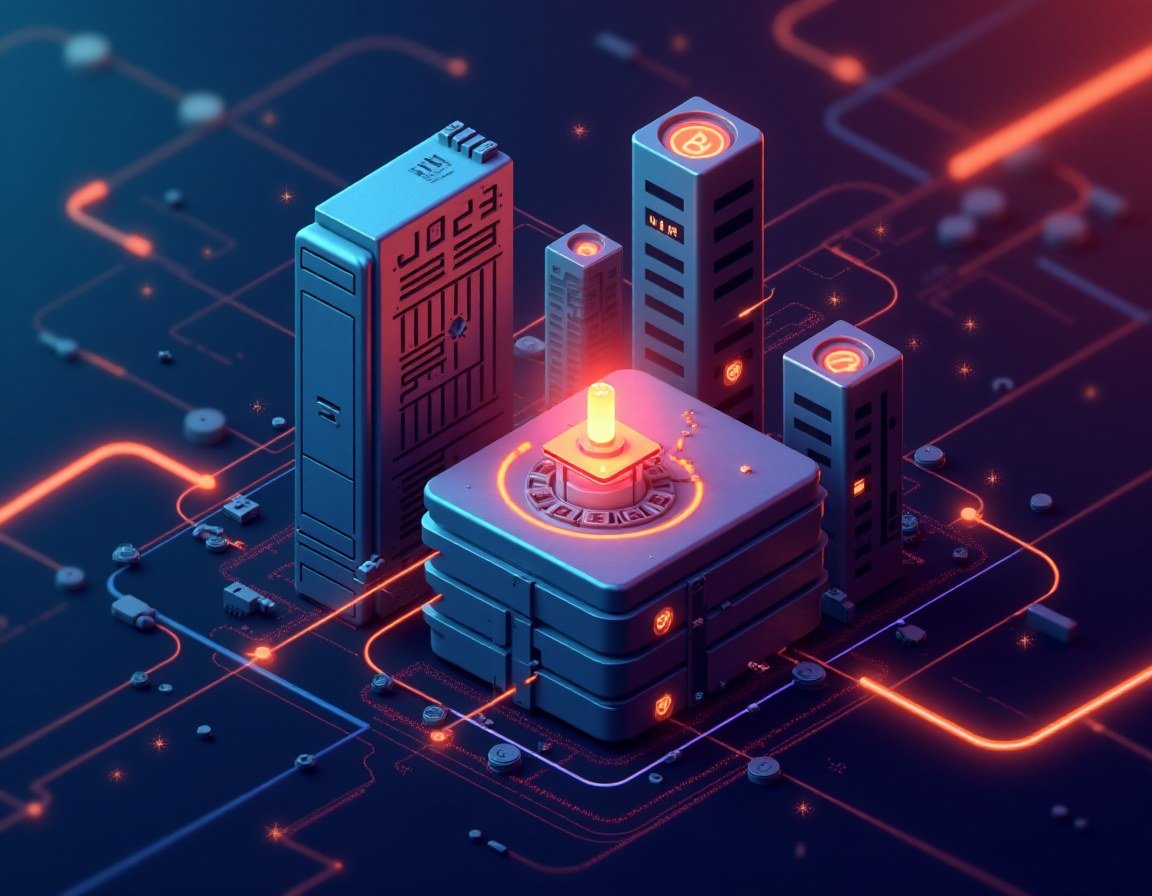The Future of Cryptocurrency: Top 10 Blockchain Innovations Revolutionizing Digital Payments in 2025

Can Blockchain Innovations Revolutionize the Future of Finance by Making Traditional Banks Obsolete? As we navigate the ever-evolving landscape of cryptocurrency trends and blockchain projects, it’s clear that this technology is poised to disrupt the status quo. In this article, we’ll delve into the latest news in blockchain innovations, exploring how they’re transforming industries and redefining the way we think about money, security, and trust.
From decentralized finance (DeFi) platforms to non-fungible tokens (NFTs), the applications of blockchain technology are vast and varied. But what does this mean for traditional banks and financial institutions? Will they be forced to adapt to a new paradigm or risk becoming obsolete? We’ll examine the current trends, breakthroughs, and innovations in the world of blockchain, providing you with a comprehensive understanding of this rapidly changing field.
Whether you’re an investor, entrepreneur, or simply curious about the future of finance, this article will equip you with the knowledge and insights needed to navigate the complex landscape of cryptocurrency trends and blockchain projects. So, let’s dive in and explore the exciting possibilities that Blockchain Innovations have in store for us!
What is Blockchain Innovations?
Blockchain Innovations refer to the latest advancements and applications of blockchain technology that are transforming various industries by providing secure, transparent, and decentralized solutions.
Blockchain technology, at its core, is a decentralized ledger that records transactions across multiple computers so that the record cannot be altered retroactively. This ensures the security and transparency of data, making it a revolutionary tool for various applications beyond just cryptocurrencies.
In recent years, we’ve seen a surge in cryptocurrency technologies and distributed ledger solutions that leverage blockchain to create new financial systems, enhance security protocols, and even revolutionize industries like healthcare, supply chain management, and real estate.
Top 10 Blockchain Innovations Revolutionizing Digital Payments in 2025
As we look towards 2025, several key blockchain innovations are set to revolutionize digital payments and reshape the financial landscape. Here are the top 10 innovations to watch:
- Decentralized Finance (DeFi) Platforms: DeFi platforms are creating open financial systems that operate without intermediaries, offering services like lending, borrowing, and trading directly on the blockchain.
- Central Bank Digital Currencies (CBDCs): Governments around the world are exploring CBDCs to provide a digital alternative to traditional fiat currencies, enhancing the efficiency and security of monetary transactions.
- Stablecoins: Stablecoins are cryptocurrencies pegged to stable assets like fiat currencies or commodities, providing a reliable medium of exchange and store of value in the volatile crypto market.
- Smart Contracts: Smart contracts are self-executing contracts with the terms directly written into code, enabling automated and trustless transactions without the need for intermediaries.
- Layer 2 Scaling Solutions: Layer 2 solutions like the Lightning Network are designed to improve the scalability and speed of blockchain transactions, making them more practical for everyday use.
- Interoperability Protocols: Interoperability protocols enable different blockchain networks to communicate and interact with each other, fostering a more connected and versatile blockchain ecosystem.
- Non-Fungible Tokens (NFTs): NFTs are unique digital assets that represent ownership of specific items or content, revolutionizing industries like art, gaming, and entertainment.
- Blockchain in Supply Chain Management: Blockchain technology is being used to enhance transparency and traceability in supply chains, ensuring the authenticity and quality of products.
- Blockchain for Identity Verification: Blockchain-based identity verification systems provide secure and tamper-proof methods for verifying identities, reducing fraud and enhancing privacy.
- Decentralized Autonomous Organizations (DAOs): DAOs are organizations governed by smart contracts and decentralized voting, enabling more democratic and transparent decision-making processes.

How Blockchain Innovations are Transforming Industries
Blockchain innovations are not limited to the financial sector; they are making significant impacts across various industries. Here are some examples:
- Healthcare: Blockchain technology is being used to secure patient data, streamline medical records, and enhance the transparency of pharmaceutical supply chains.
- Real Estate: Blockchain is revolutionizing real estate transactions by providing transparent and tamper-proof records of property ownership and facilitating faster and more secure transactions.
- Supply Chain Management: Blockchain enhances the traceability and transparency of supply chains, ensuring the authenticity and quality of products from origin to consumer.
- Voting Systems: Blockchain-based voting systems offer secure and transparent methods for conducting elections, reducing the risk of fraud and enhancing voter confidence.
- Intellectual Property: Blockchain provides a secure and transparent way to manage intellectual property rights, ensuring that creators are fairly compensated for their work.
Challenges and Risks of Blockchain Innovations
While blockchain innovations offer numerous benefits, they also come with challenges and risks that need to be addressed:
- Scalability: Many blockchain networks struggle with scalability, limiting their ability to handle large volumes of transactions efficiently.
- Regulatory Uncertainty: The regulatory landscape for blockchain and cryptocurrencies is still evolving, creating uncertainty for businesses and investors.
- Security Risks: While blockchain is inherently secure, vulnerabilities in smart contracts and other components can be exploited by malicious actors.
- Energy Consumption: The energy consumption of blockchain networks, particularly proof-of-work systems, is a significant concern for sustainability.
- Interoperability: Ensuring seamless interoperability between different blockchain networks remains a challenge, limiting the potential for a fully connected blockchain ecosystem.
Conclusion
As we look towards 2025, it’s clear that blockchain innovations are set to revolutionize digital payments and transform various industries. From decentralized finance platforms to non-fungible tokens, the applications of blockchain technology are vast and varied. While challenges and risks remain, the potential benefits of blockchain innovations are undeniable.
Whether you’re an investor, entrepreneur, or simply curious about the future of finance, staying informed about the latest trends and developments in blockchain technology is essential. By understanding the potential and limitations of blockchain innovations, you can better navigate the complex landscape of cryptocurrency trends and blockchain projects.
So, what do you think? Can blockchain innovations revolutionize the future of finance by making traditional banks obsolete? Only time will tell, but one thing is certain: the future of blockchain technology is incredibly exciting and full of possibilities.
Additional Resources
Follow and Subscribe
Stay updated with the latest news and trends in blockchain and cryptocurrency by following us and subscribing to our newsletter:
“`






